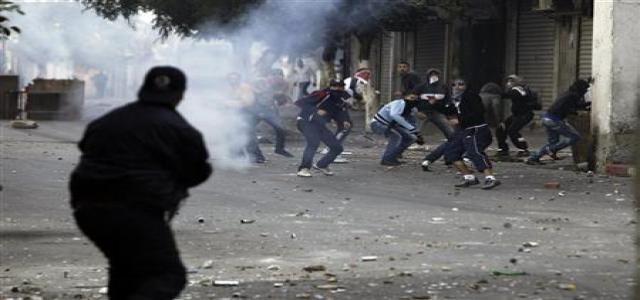- DemocracyOther OpinionsViva La Tunisia
- January 12, 2011
- 4 minutes read
Why Is the West Turning a Blind Eye to Tunis’ Protest?

According to reliable sources, a bus loaded with a number of government militia and a TV team was heading from Tunisia to Kasserine to carry out looting of private and public institutions in order to confirm the well-played out lie that assassins and looters are behind the riots in Kasserine city in Tunisia.
The government, under the dictator, Zen El Abidine Ben Ali, was hoping to broadcast those images in order to legitimize its massacre of the people. Troops are being deployed in Tunisia as anti-government protests spread to the capital of Tunis and 23 fatalities have been reported. Over 200 demonstrators in the capital have clashed since the wave of violence began last month after protests over unemployment, posing the most serious challenge to the autocratic president’s two decades of iron-fisted tyrannical rule. As the West witnesses in deafening silence, one can not help but wonder which scales are being used when the lives of innocent Middle Eastern people are affected with little or no intervention or condemnation on behalf of the oppressed people.
Little media coverage or reprimands by the US have been issued in comparison to North Africa or Middle Eastern media; even Europe has dedicated two stories in the British Guardian by columnist Brian Whitaker as he calls the Tunisian protests the ‘most important and most inspiring story from the Middle East this year’. In another story a few days earlier, Whitaker again wrote a scathing critique of the Tunisian government, commenting at the end that Ben Ali’s days in power are probably numbered.
The US administration’s failure to remark on the Tunisian events reveals the hypocrisy of the US when it comes to supporting human rights in Middle Eastern countries. In all reality, it is well-aware of the current situation and in fact a leaked cable concerning Tunisia from a former US ambassador to the State Department, contained very explicit and damning information, which detailed the repressive environment in Tunisia and its widespread corruption.
History has proven that the silence can be attributed to the Obama administration’s caution about opening up another front of social unrest with Iraq, Afghanistan, Yemen and Somalia on its hands. Although it could be true that the US may not be fond of the dictator Ben Ali, he serves as an appropriate pawn with regards to the collaborating policy in the Middle East and Africa, in addition to being efficient in dealing with NATO and AFRICOM.
Again and unsurprisingly, the so-called democracy-loving US administration has disregarded its commitment to human rights concerns in order to maintain strategic support for any dictatorial tyrant who efficiently serves its purpose.



